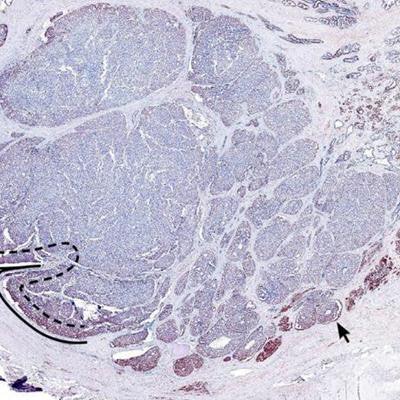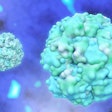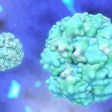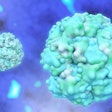
The mitochondrial protein syntaphilin (SNPH) could be the key in identifying prostate cancer patients who have more aggressive disease and a poorer prognosis, according to a May 9 paper in the American Journal of Pathology highlighting the potential of the biomarker.
Senior author Dr. Marie Robert from Yale School of Medicine and colleagues noted that syntaphilin "has been identified as a key determinant of the balance between cell proliferation and cell invasion in tumors, including prostate cancer," and that SNPH levels are "exquisitely sensitive to changes commonly observed in the microenvironment of tumor growth."
In the study of specimens from 89 men who had undergone prostatectomy, a lower level of SNPH in the central core of tumors compared with the invasive outer edge was associated with increased risk of metastasis, Robert et al wrote. The data suggest that SNPH is a novel marker for prostate cancer that has a high Gleason grade, is differentially expressed at the invasive front versus the central tumor bulk, and is potentially downregulated in metastatic disease.
"This biphasic pattern of expression may reflect a dual function of SNPH in controlling the balance between cell proliferation and invasion in tumors," the authors wrote.
 (A) Low magnification view of a cancer nodule with the central tumor bulk consisting predominantly of invasive cribriform Gleason pattern 4. (B) Low magnification view of the same nodule with an outer rim of accentuated SNPH staining. Image courtesy of the American Journal of Pathology.
(A) Low magnification view of a cancer nodule with the central tumor bulk consisting predominantly of invasive cribriform Gleason pattern 4. (B) Low magnification view of the same nodule with an outer rim of accentuated SNPH staining. Image courtesy of the American Journal of Pathology.Because most prostate cancers are not aggressive, screening for prostate-specific antigen (PSA) has been controversial as it could lead to overdiagnosis and excessive treatment. In a statement about the publication of the data, Robert described the ability to predict aggressive behavior in prostate cancer as an "entirely unmet and urgent need," with no tissue-based biomarkers available to help guide treatment based on the nature of the disease. Larger studies are needed to advance SNPH as a biomarker, the researchers concluded.



















